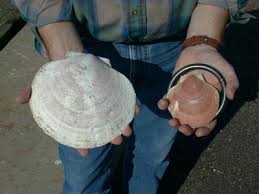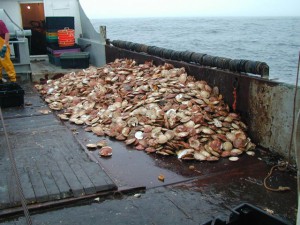NCCOS-sponsored researchers have developed a user-friendly computer program to help manage the U.S. commercial Atlantic sea scallop fishery, which is threatened by progressively higher temperatures and ocean acidification.

The Integrated Assessment Model (IAM) concurrently simulates ocean conditions related to temperature and ocean acidification, sea scallop population dynamics, and economic impacts on the scallop fishery. In the past, scientists studied each component separately, making it difficult to predict the full range of environmental change impacts on the sea scallop fishery as a whole.

In time, model outputs will be posted on an interactive website where users can compare and contrast the effects of different management, environmental, and market scenarios. The model is described in greater detail in the online, open access scientific journal PLOS ONE.
The project is led by the Woods Hole Oceanographic Institution, in partnership with NOAA’s Northeast Fisheries Science Center and The Ocean Conservancy, and was funded by NCCOS and the NOAA Ocean Acidification Program.
